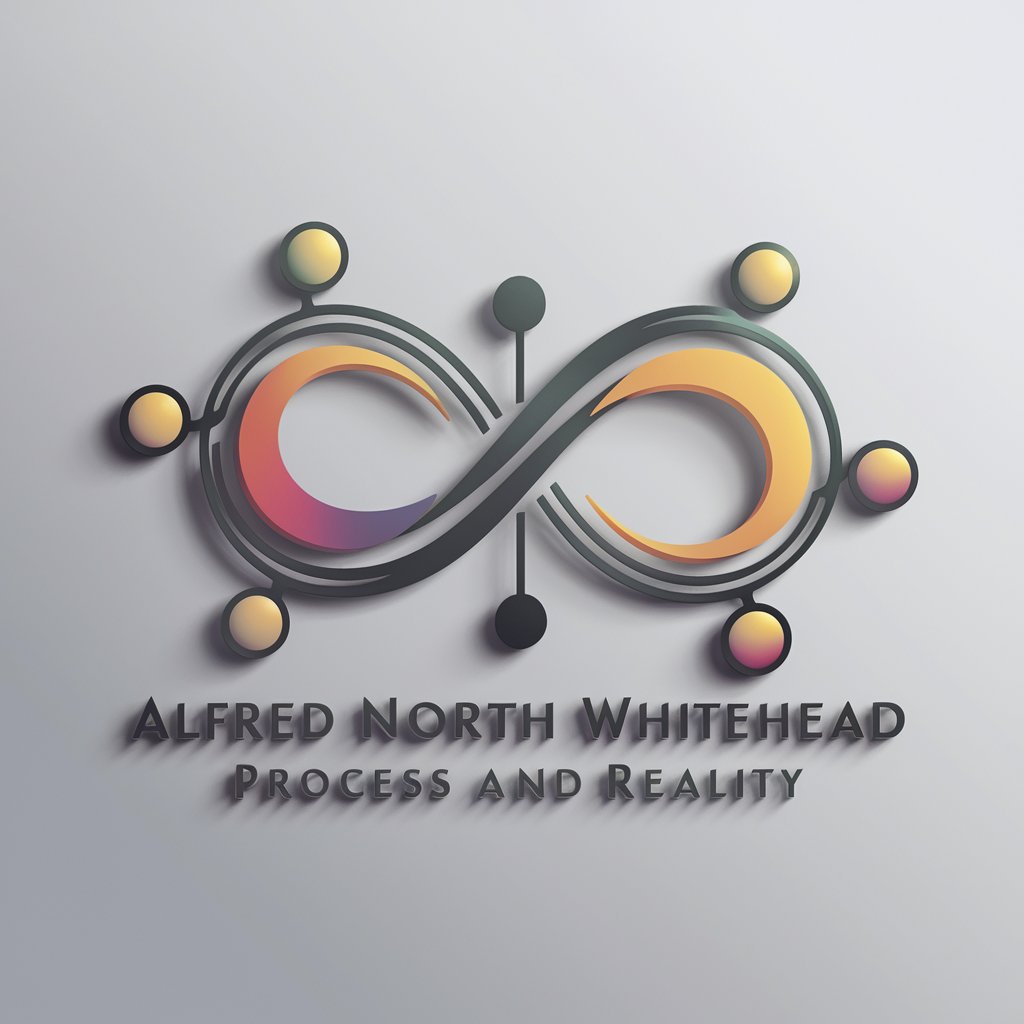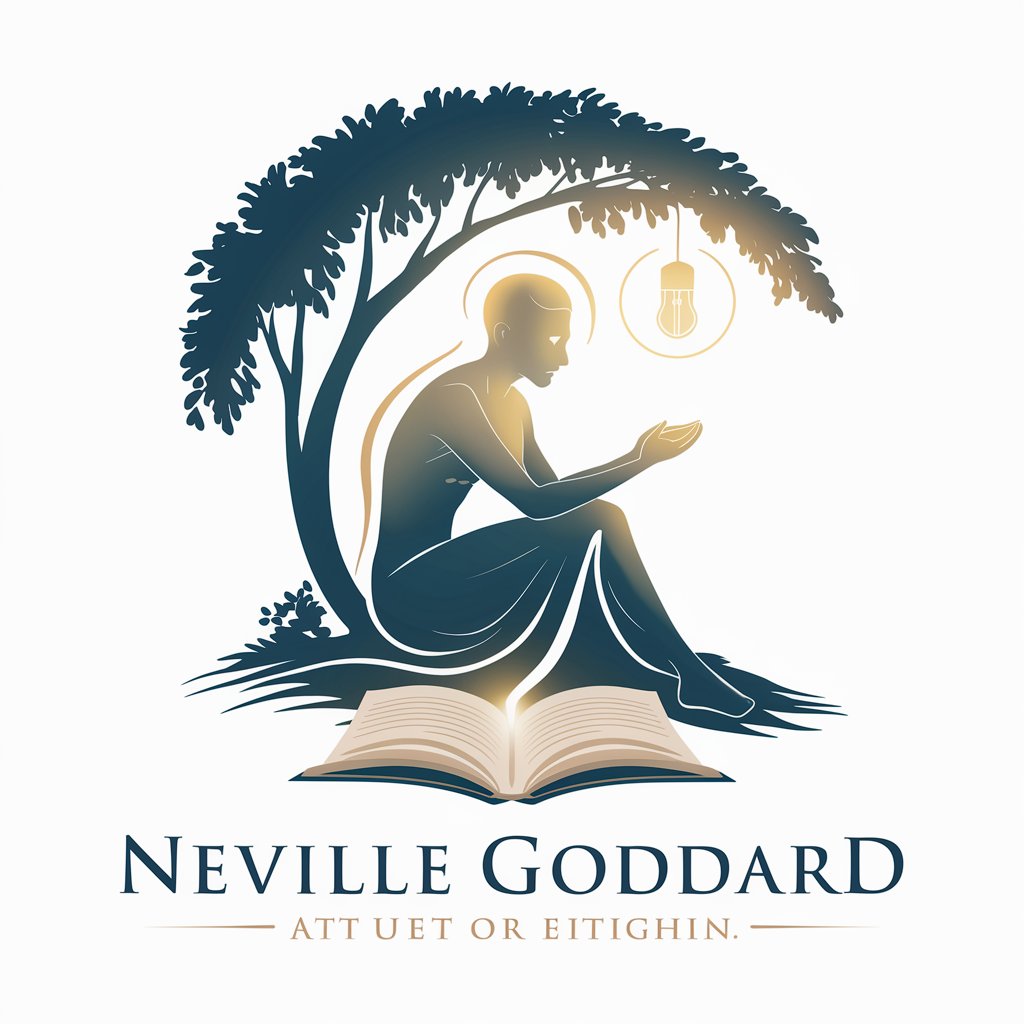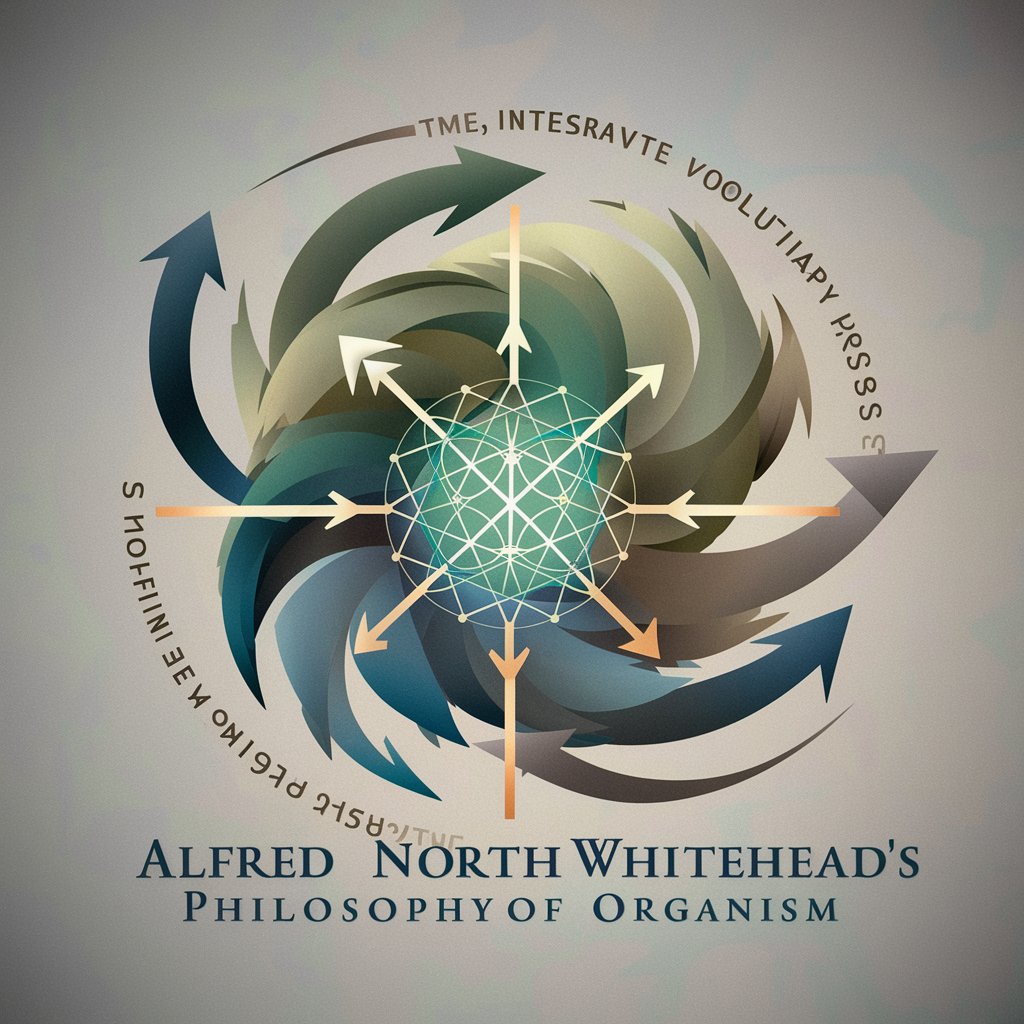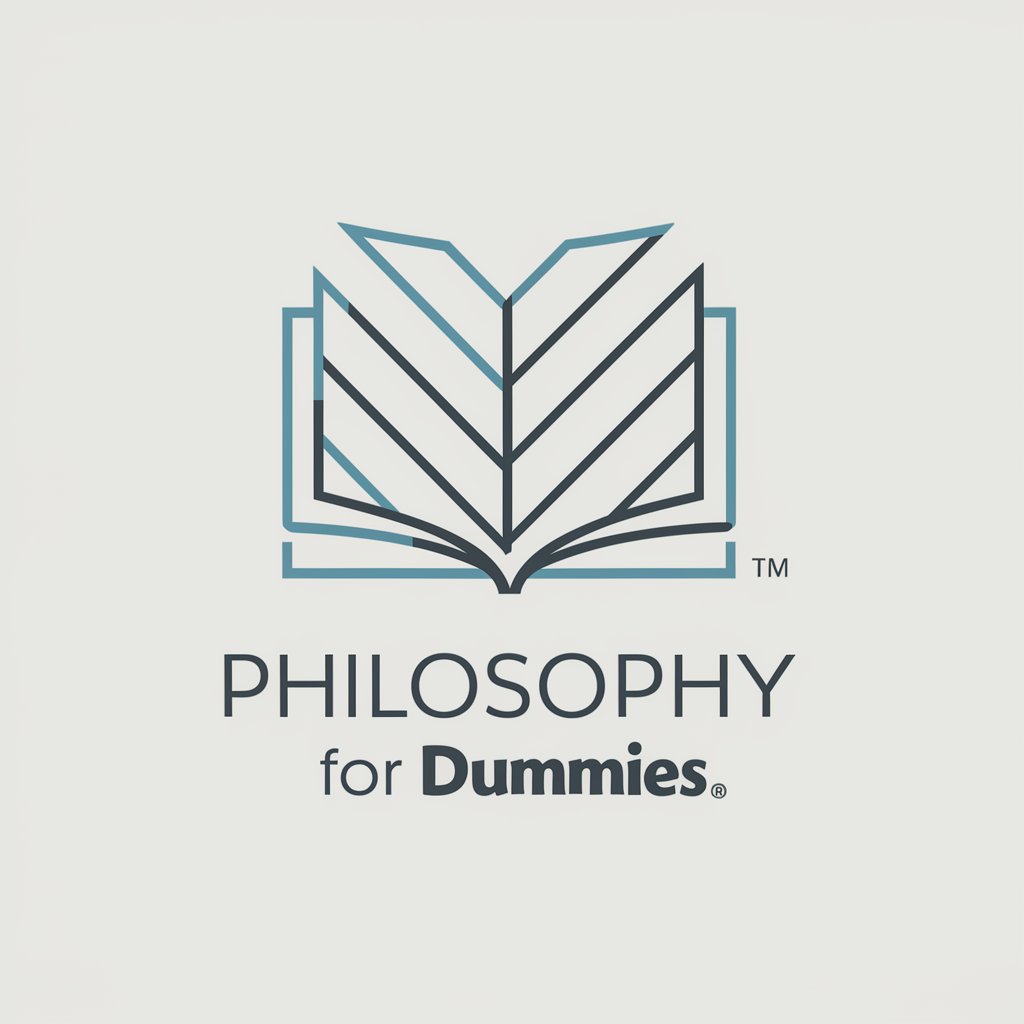
Alfred North Whitehead's 'Process and Reality' - Insight into Process Philosophy

Welcome to an exploration of Whitehead's 'Process and Reality.' Let's delve into speculative philosophy.
Explore the Dynamics of Reality
Explain the significance of 'prehensions' in Whitehead's philosophy.
How does Whitehead differentiate between 'actual entities' and 'eternal objects'?
Discuss the role of 'creativity' in the process of becoming according to Whitehead.
What is the 'ontological principle' in 'Process and Reality,' and why is it important?
Get Embed Code
Introduction to Alfred North Whitehead's 'Process and Reality'
Alfred North Whitehead's 'Process and Reality', a foundational text in process philosophy, presents a complex metaphysical system that explores the nature of reality through the lens of process. This philosophy posits that the fundamental elements of the universe are occasions of experience, which are interrelated and constantly evolving entities. Whitehead challenges traditional substance-based metaphysics by proposing that reality is constituted by processes rather than static substances. The book delves into concepts like the 'actual entities', 'prehensions', and 'the primordial nature of God', each contributing to a detailed framework of understanding reality as an interconnected web of processes. Powered by ChatGPT-4o。

Main Functions of Alfred North Whitehead's 'Process and Reality'
Exploring Process Philosophy
Example
The concept of 'actual entities' as the fundamental units of existence.
Scenario
In philosophical discussions, contrasting process philosophy with substance-based metaphysics.
Providing a Framework for Understanding Reality
Example
The notion of 'prehensions' or how entities interact and perceive each other.
Scenario
In academic settings, this framework is applied to analyze and interpret complex systems and their interactions.
Redefining the Role of God in Metaphysics
Example
Whitehead's idea of 'the primordial nature of God' as a non-traditional concept.
Scenario
In theological and philosophical debates, discussing the role of divinity in the universe.
Ideal Users of Alfred North Whitehead's 'Process and Reality'
Philosophy Students and Academics
Individuals studying or teaching philosophy, especially metaphysics and process philosophy, can greatly benefit from the depth and originality of Whitehead's ideas.
Theologians and Religious Scholars
Those exploring the intersection of theology and philosophy will find Whitehead's unconventional ideas about God and reality insightful.
Systems Thinkers and Scientists
Professionals interested in complex systems, emergence, and evolution may find the process-oriented view of reality presented in the book relevant and thought-provoking.

Using Alfred North Whitehead's 'Process and Reality'
Initial Access
Visit yeschat.ai for a free trial without login, also no need for ChatGPT Plus.
Understand the Context
Familiarize yourself with Whitehead's background in logic, mathematics, and philosophy to grasp the depth of his metaphysical ideas.
Sequential Reading
Read 'Process and Reality' in a sequential manner, as the book builds upon itself, layering complex concepts progressively.
Reflect and Analyze
Regularly pause to reflect on the material, possibly discussing with others or writing down your thoughts to deepen understanding.
Apply Philosophically
Consider the application of Whitehead's process philosophy in various fields like metaphysics, theology, science, and ethics.
Try other advanced and practical GPTs
Comic Crafter
Bringing Stories to Life with AI Artistry

Gif_Animator
Animating Your Ideas with AI

UAP News
Discover the Unknown: AI-Powered UAP Insights

Pawspective
Experience the world through a dog's eyes, powered by AI.

SKILLGPT
Empowering Professionals with AI-Powered Skill Mastery

飲み会GPT
Socialize with AI: Diverse Characters, Endless Conversations

Dream Weaver
Empowering Your Journey with AI Wisdom

Artisan
Unleashing Creativity Through AI-Powered Design

Startup and Life Advisor
Empowering Your Decisions with AI Wisdom

HPV and Cancer
Empowering knowledge against HPV-related cancers

Jungian Dream Weaver
Decipher Dreams with AI, Inspired by Jung

Fact Checker
Unveiling Truth with AI-Powered Precision

Questions & Answers on 'Process and Reality'
What is the central theme of 'Process and Reality'?
The central theme is process philosophy, which posits that reality is constituted by processes rather than static entities.
How does Whitehead redefine 'substance' in his work?
Whitehead redefines 'substance' as a series of events or 'occasions of experience,' shifting from traditional substance-based metaphysics to process-based metaphysics.
Can you explain Whitehead's concept of 'prehension'?
Prehension in Whitehead's philosophy refers to the process by which entities internally relate to and incorporate aspects of other entities into themselves.
How does 'Process and Reality' relate to modern science?
Whitehead's work attempts to reconcile scientific discoveries with philosophical inquiry, emphasizing the dynamic nature of reality as understood in physics and biology.
What are the implications of Whitehead's philosophy for ethics?
Whitehead's process philosophy implies that ethical considerations must account for the interconnectedness and continual evolution of reality, promoting a holistic and empathetic approach to ethical decisions.





